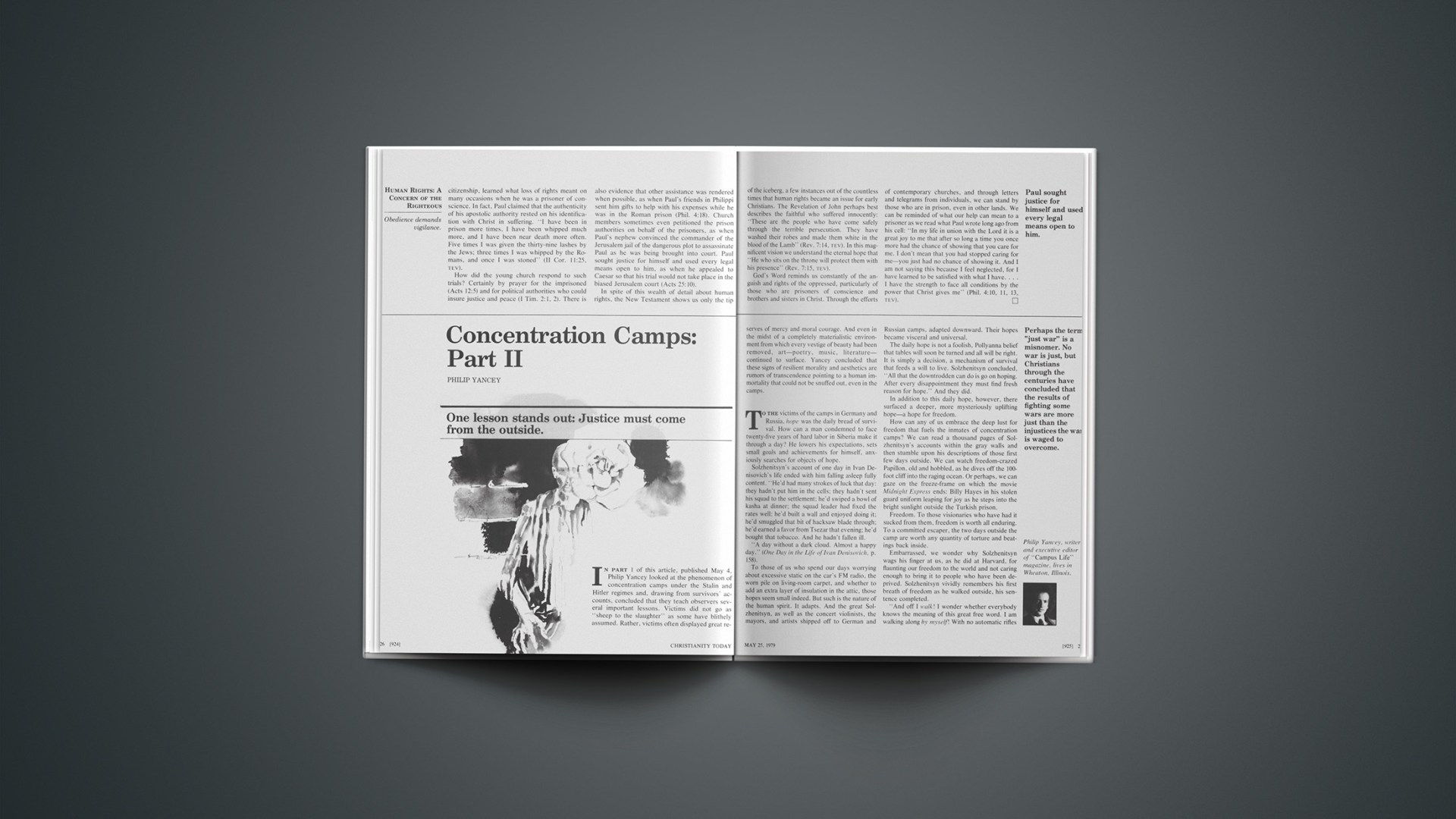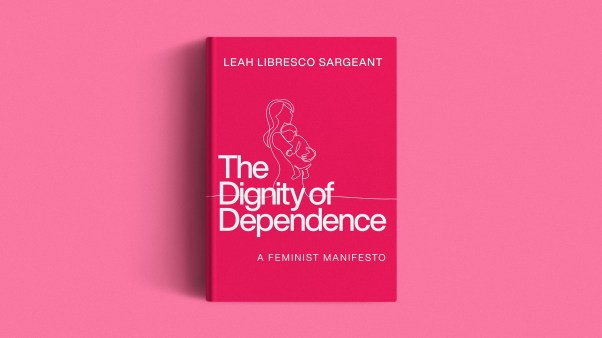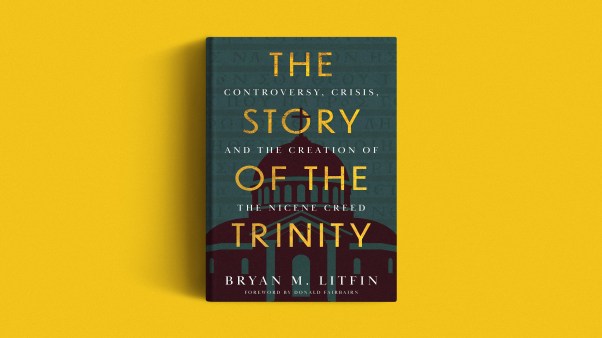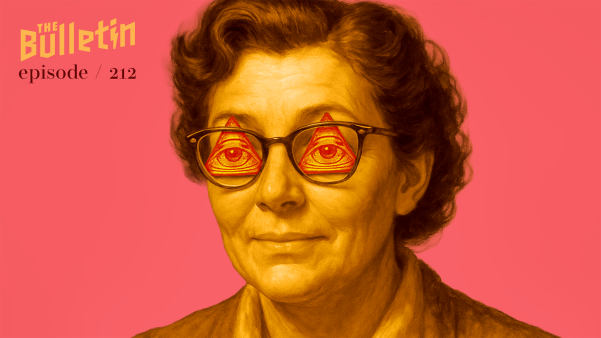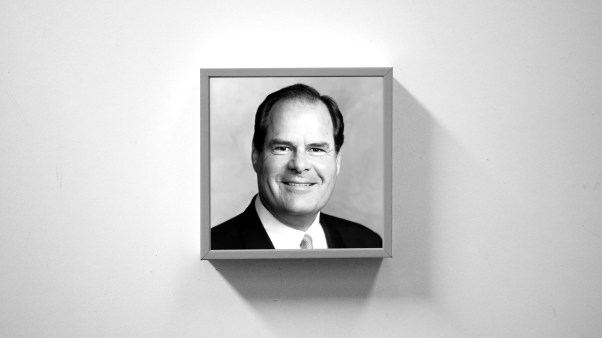In part 1 of this article, published May 4, Philip Yancey looked at the phenomenon of concentration camps under the Stalin and Hitler regimes and, drawing from survivors’ accounts, concluded that they teach observers several important lessons. Victims did not go as “sheep to the slaughter” as some have blithely assumed. Rather, victims often displayed great reserves of mercy and moral courage. And even in the midst of a completely materialistic environment from which every vestige of beauty had been removed, art—poetry, music, literature—continued to surface. Yancey concluded that these signs of resilient morality and aesthetics are rumors of transcendence pointing to a human immortality that could not be snuffed out, even in the camps.
To the victims of the camps in Germany and Russia, hope was the daily bread of survival. How can a man condemned to face twenty-five years of hard labor in Siberia make it through a day? He lowers his expectations, sets small goals and achievements for himself, anxiously searches for objects of hope.
Solzhenitsyn’s account of one day in Ivan Denisovich’s life ended with him falling asleep fully content. “He’d had many strokes of luck that day: they hadn’t put him in the cells; they hadn’t sent his squad to the settlement; he’d swiped a bowl of kasha at dinner; the squad leader had fixed the rates well; he’d built a wall and enjoyed doing it; he’d smuggled that bit of hacksaw blade through; he’d earned a favor from Tsezar that evening; he’d bought that tobacco. And he hadn’t fallen ill.
“A day without a dark cloud. Almost a happy day.” (One Day in the Life of Ivan Denisovich, p. 158).
To those of us who spend our days worrying about excessive static on the car’s FM radio, the worn pile on living-room carpet, and whether to add an extra layer of insulation in the attic, those hopes seem small indeed. But such is the nature of the human spirit. It adapts. And the great Solzhenitsyn, as well as the concert violinists, the mayors, and artists shipped off to German and Russian camps, adapted downward. Their hopes became visceral and universal.
The daily hope is not a foolish, Pollyanna belief that tables will soon be turned and all will be right. It is simply a decision, a mechanism of survival that feeds a will to live. Solzhenitsyn concluded, “All that the downtrodden can do is go on hoping. After every disappointment they must find fresh reason for hope.” And they did.
In addition to this daily hope, however, there surfaced a deeper, more mysteriously uplifting hope—a hope for freedom.
How can any of us embrace the deep lust for freedom that fuels the inmates of concentration camps? We can read a thousand pages of Solzhenitsyn’s accounts within the gray walls and then stumble upon his descriptions of those first few days outside. We can watch freedom-crazed Papillon, old and hobbled, as he dives off the 100-foot cliff into the raging ocean. Or perhaps, we can gaze on the freeze-frame on which the movie Midnight Express ends: Billy Hayes in his stolen guard uniform leaping for joy as he steps into the bright sunlight outside the Turkish prison.
Freedom. To those visionaries who have had it sucked from them, freedom is worth all enduring. To a committed escaper, the two days outside the camp are worth any quantity of torture and beatings back inside.
Embarrassed, we wonder why Solzhenitsyn wags his finger at us, as he did at Harvard, for flaunting our freedom to the world and not caring enough to bring it to people who have been deprived. Solzhenitsyn vividly remembers his first breath of freedom as he walked outside, his sentence completed.
“And off I walk! I wonder whether everybody knows the meaning of this great free word. I am walking along by myself! With no automatic rifles threatening me, from either flank or from the rear. I look behind me: no one there! If I like, I can take the right-hand side, past the school fence, where a big pig is rooting in a puddle. And if I like, I can walk on the left, where hens are strutting and scratching.…
“I cannot sleep! I walk and walk and walk in the moonlight. The donkeys sing their song. The camels sing. Every fiber in me sings: I am free! I am free!” (Gulag, Vol. 3, pp. 417, 421).
The experience of hope beyond all hoping, pregnant with symbolism, and the lust for freedom that burns inside the victims of the camp are to me more rumors of transcendence, evidences of the image of God stamped indelibly upon the spirit of man. For God invested in man such a healthy dose of freedom that men ultimately perverted it to create the very camps that try to eliminate it.
Freedom has its abuses, of course. As C. S. Lewis said of democracy, we should seek it not because it is a romanticized ideal, but because we cannot entrust one man or a few with the precious gifts of power and freedom; we need spread them among the many.
One step beyond even the hope that expresses itself in a zeal for freedom is the religious hope that prevails among victims of the camps. “When things are bad,” said Solzhenitsyn, “we are not ashamed of our God. We are only ashamed of Him when things go well.”
Bruno Bettelheim, a psychologist and survivor of the camps, states flatly, “It is a well-known fact of the concentration camps that those who had strong religious and moral convictions managed life there much better than the rest. Their beliefs, including belief in an afterlife, gave them a strength to endure which was far above that of most others.”
Religious hope did not survive for everyone. To some, the tragedy of the camps was final proof that God did not care about the human plight. But to others, in Stalin’s Russia and Hitler’s Germany, religious faith was a hope that could not be extinguished. Rumors of freedom and amnesties came and went; God could be counted on forever, even though he seemed very distant at the time.
Who Will Get You Out?
We have surveyed some of the more remarkable effects of concentration camps on their victims. Contrary to expectations, the victims did not lose their identities and become faceless, obedient automatons. Many showed a highly developed sense of morality, art, and beauty.
Unlike an animal bred in a zoo, man never loses sight of his higher destiny. He never learns to belong to the camps.
Yet, that uplifting conclusion is far from satisfying. Solzhenitsyn emerged a stronger man; but what of his fellow-zeks who died? Elie Wiesel today stirs the world’s emotions with his memories of suffering—but what of the dead ones Wiesel describes? Six million Jews were killed; only one percent of that number were liberated from the camps.
And what of those who are permanently scarred? Some live with terror in their eyes, unable to cope with the outside world, incapable of trust. The sight of a German shepherd dog reduces them to trembling.
The message of Ivan Denisovich is that an iron will, some luck, and perhaps God, can get you through one day in the concentration camps. But a larger question resounds: Who will get you out?
In the spring of 1978, while the TV series The Holocaust was being shown, my church introduced a service of identification for the Jews who had suffered, a Yom HaShoah liturgy for Christians. Various members of the congregation, including children, read us voices from the survivors.
The congregation sat quietly while each of the readings was given. A few people had to leave when the descriptions became too graphic. A friend thoughtfully absorbed all that was said, and after the service gave me this reaction: “Something pains me more than all the agony and guilt I feel hearing those voices of the Jews. All I can do for them is empathize and feel sorry. What really bothers me is how many situations like that we are ignoring now. It’s easy to blame the Christians in World War II for not acting quicker, more decisively. But are we reacting today—in places like Cambodia and Uganda? Should we be having services about those places instead?”
The facts of the Jewish death camps were published in great detail in advertisements in The New York Times as early as 1939. Few believed them, no one responded, and the United States did not even enter the war until two years later, after a direct attack by the Japanese.
Outside of Auschwitz, there is a field covered with twelve inches of fine bone loam, the remains of 60,000 Jews burned there. Yet one million Cambodians were killed in the last two years. How did we respond?
A tormenting question echoes and re-echoes throughout volume 3 of Solzhenitsyn’s Gulag Archipelago: “Did I do enough to resist?” Survivors of the camps seem tortured with that issue. Yet to those of us on the outside, our attitude is seen in the fact that the publishers delayed publication of volume 3 for almost two years, because American readers had grown bored with Solzhenitsyn’s descriptions of the camps, and volume 2 was losing money.
Appeals to direct intervention in places like Uganda and Cambodia, by the radical right or even by people like Senator George McGovern, were met either with self-righteous indignation (“Didn’t you learn from the experience of Vietnam?”) or a prolonged yawn. Who cares?
Yet it seems to me an unavoidable conclusion from the camps that one lesson is more important than all others: justice must come from the outside. Every victim of a camp is apocalyptic—he can only wait for relief by an outside force. No amount of morality, courage, sense of beauty, and infection of hope will assure his survival apart from the outside force. For the overwhelming majority, survival depends on the destruction of the concentration camp world. The main issue is not what the prisoner can do—he is impotent—but the need to overcome in some way the perpetrators of the camp.
Until the Allied liberation, of all the millions of Jews imprisoned, only three had managed to escape—the German camps were that efficient.
Why Don’T We Respond?
The cries of the survivors—Solzhenitsyn, Bettelheim, and the others—are so compelling, one would expect them to unite a free world against tyranny of all forms. Somehow, the opposite proves true. Jimmy Carter is scorned for foolishly trying to inject morality into foreign policy, daring to let issues of torture and human rights interfere with the more weighty matters of trade.
If we uncovered genocide today, on the scale of the persecution of Jews by Germans, would we respond? Should we? To me, this is the complex but inescapable burning issue that arises from the concentration camps. And it is an issue we are politely ignoring. After reading dozens of accounts of the German and Russian tragedies, I have recoiled with indignation against the evil they comprise. Yet, almost immediately, subtle forces enter in to soften the anger, soothe it away, ease me back to complacency. I have tried to identify those forces.
1. First, there is the simple fact that a man who is warm finds it hard to understand one who is cold. Solzhenitsyn himself, a repository of unquenchable resistance against oppression, found this process seeped into his consciousness after he gained respectability in the Khrushchev era and his novel One Day was printed by the national magazines. He was called into the opulent bureaucratic headquarters in Red Square to testify about the injustices he had seen and felt. He gave his report to understanding technocrats who had reasonable answers to all his protests. “And indeed,” he records, “seen from this bright, festive room, from these comfortable armchairs, to the accompaniment of their smoothly flowing eloquence, the camps look not horrible but quite rational.… Well, would you let these terrible people loose on the community?” (Gulag, Vol. 3, p. 500).
Wary of the dangers of forgetting, Solzhenitsyn started an annual ritual on the anniversary of his arrest. He organized “a zek’s day”: in the morning he cut off 650 grams of bread for his daily ration, and for lunch fixed himself some broth and a ladleful of thin mush. “How quickly I get back to my old form: by the end of the day I am already picking up crumbs to put in my mouth, and licking the bowl. The old sensations start up vividly.” (Gulag, Vol. 3, p. 461).
This phenomenon of numbness to suffering took on terrible proportions shortly before World War II as Joe Bayly recently pointed out in his Eternity magazine column. The Manchester Guardian’s Peggy Mann recently visited the resort area in Evian-Lesbains, France, and talked to one employee who remembered the conference where President Roosevelt and other world leaders discussed Hitler’s atrocities. He recalled, “Very important people were here and all the delegates had a nice time. They took pleasure cruises on the lake. They gambled at night in the casino. They took mineral baths and massages at the Establissement Thermal. Some of them took the excursion to Chamonix to go summer skiing. Some went riding; we have, you know, one of the finest stables in France. Some played golf. We have a beautiful course overlooking the lake.
“Meetings? Yes, some attended the meetings. But, of course, it is difficult to sit indoors hearing speeches when all the pleasures that Evian offers are waiting outside.”
The conference failed. Immigration quotas were not changed to allow more Jews to escape to freedom. Hitler was not censured.
And, I might add, it is difficult to sit indoors reading about the suffering and oppressed of the world when all the pleasures that America offers are waiting right outside.
2. Our resistance to fury at oppression has been aided, I think, by a healthy reaction to our bumbling in Vietnam. Most people admit our policy there was mistaken in some way—either in conception or technique. Combining that experience with the one in Korea, we learned our nation cannot be policeman to the world. And now, as conflagrations flare around the world, America takes a strident but muscleless posture.
Solzhenitsyn dares to hammer home at what he sees as the logical consequence of this reaction. In his Harvard speech he thundered, “The most cruel mistake occurred with the failure to understand the Vietnam War. Some people sincerely wanted all wars to stop just as soon as possible; others believed that there should be room for national, or Communist, self-determination in Vietnam, or in Cambodia, as we see today with particular clarity. But members of the U. S. anti-war movement wound up being involved in the betrayal of Far Eastern nations, in a genocide and in the suffering today imposed on 30 million people there. Do these convinced pacifists hear the moans coming from there? Do they understand their responsibility today? Or do they prefer not to hear? The American intelligentsia lost its nerve, and as a consequence thereof danger has come much closer to the United States. But there is no awareness of this. Your short-sighted politicians who signed the hasty Vietnam capitulation seemingly gave America a carefree breathing spell; however, a hundred-fold Vietnam now looms over you.”
Solzhenitsyn drew those conclusions; I’m not sure I am ready to. But I admit I am affected by a reaction against our country’s failure in the past. A dog bitten by a snake is less apt to chase snakes again.
3. A latent pacifism has gained ground in evangelical circles.
In September of 1978 Sojourners ran an article entitled “Security in a Nuclear World,” by Gordon Cosby. In it Cosby argued that our dependence on spending millions for national defense is “a negation of biblical faith.”
“One thing history confirms,” he continues: “The nation who trusts in anything other than God is abandoned by God. Every attempt at security fails because God abandons that people. We feel that the danger of extinction is being held back by 9,500 missiles. They are not holding anything back. God in his mercy is holding it back. The missiles are the vials of his wrath waiting to be overturned. We would be safer without them.”
I wondered why the Rev. Cosby didn’t apply the same logic to other areas of life. Am I mocking God and showing my lack of faith by locking my door at night? Am I mocking God by putting a new roof over my house? Should I instead trust him to send the weather that is best to me? Do our fire departments, police departments and laws mock God? Or has he instead sanctioned these means to assist us in coping with a fallen world?
Christians who support the military do not support it, one would hope, for a great love of bloodshed and violence. They do so sadly, as an expression of the restraints needed to contain the forces of evil which, unchecked, can create such monstrosities as the concentration camps. Perhaps the term “just war” is a misnomer. No war is just, but Christians through the centuries have concluded that the results of fighting some wars are more just than the injustices the war is waged to overcome.
Today the trend is to emphasize the injustices of wars. Author Kurt Vonnegut dwells on the Dresden bombing of World War II rather than the liberation aspects. In the film Seven Beauties, Lina Wertmuller states her case superbly. By interspersing scenes from the concentration camps with scenes of American soldiers a-whoring through the streets of Naples, she seems to imply that those Americans who fought Fascism were as bad, really, as the forces they defeated. She seems to say that nothing makes any difference—Hitler or his demise, the camps or their liberation. Tragedy, comedy, and injustice are equally found in all of them.
Bruno Bettelheim, a survivor of the camps, wrote a stinging denunciation of Seven Beauties in a lengthy New Yorker article in 1976. He concluded the piece with this paragraph. “Our experience did not teach us that life is meaningless, that the world of the living is but a whorehouse, that one ought to live by the body’s crude claims, disregarding the compulsions of culture. It taught us that, miserable though the world in which we live may be, the difference between it and the world of the concentration camps is as great as that between night and day, hell and salvation, death and life. It taught us that there is meaning to life, difficult though that meaning may be to fathom—a much deeper meaning than we had thought possible before we became survivors” (The New Yorker, August 2, 1976, p. 52).
The survivors of the concentration camps show the worthiness of the project left to us by Jesus, who came into the Gulag of earth to release the captives and to bring freedom to the enslaved. The survivors are still with us. Their morality, art, and sense of hope are glimmers of the immortal soul within them, souls worth freeing and redeeming.
A passive watching of the diminution of freedom is far easier. The lesson of the camps teaches me that we dare not abrogate our responsibility and pretend that the lessons from the camps are mere history lessons.
G. Douglas Young is founder and president of the Institute of Holy Land Studies in Jerusalem. He has lived there since 1963.

